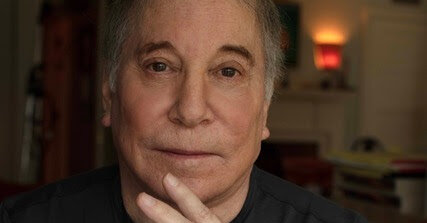
Simon begins the album in his most casual tone. Over calmly precise and rhythmically flexible guitar picking, he sings, “I’ve been thinking about the great migration.”
Almost immediately, it becomes clear that the migration is from life to death, a transition the singer is preparing to make himself. He’s thinking about time, love, culture, family, music, eternity and God, striving to balance skepticism and something like faith. “I have my reasons to doubt/A white light eases the pain,” Simon sings in “Your Forgiveness.” “Two billion heartbeats and out/Or does it all begin again?”
Simon’s songwriting has never been particularly religious. Over the years, he has drawn on gospel music for songs like “Bridge Over Troubled Water” and “Loves Me Like a Rock,” which bring religious imagery to secular relationships, and his 2011 album, “So Beautiful or So What,” had touches of Christian imagery — but also imagined “The Afterlife” as one last bureaucracy, where arrivals have to “Fill out a form first/And then you wait in a line.”
“Seven Psalms” is more humble and awe-struck. Its refrains return to, and work variations on, the album’s opening song, “The Lord.” As in the psalms of the Bible — which, as Simon notes in “Sacred Harp,” were songs — Simon portrays the Lord in sweeping ways: wondrous and terrifying, both protector and destroyer, sometimes benign and sometimes wrathful. The Lord, Simon sings, is “a meal for the poorest, a welcome door to the stranger.” Then he turns to naming 21st-century perils: “The Covid virus is the Lord/The Lord is the ocean rising.”
Much of the music sounds like solitary ruminations: Simon communing with his guitar, which has been the subtly virtuosic underpinning of most of his lifetime of songs. As his fingers sketch patterns, he latches onto melody phrases and then lets them go, teasing at pop structures but soon dissolving them. And around him, at any moment, sounds can float out of the background: additional supportive guitars, the eerie microtonal bell tones of Harry Partch’s cloud-chamber bowls, the jaunty huffing of a bass harmonica and, in the album’s final moments, the voice of his wife, Edie Brickell.